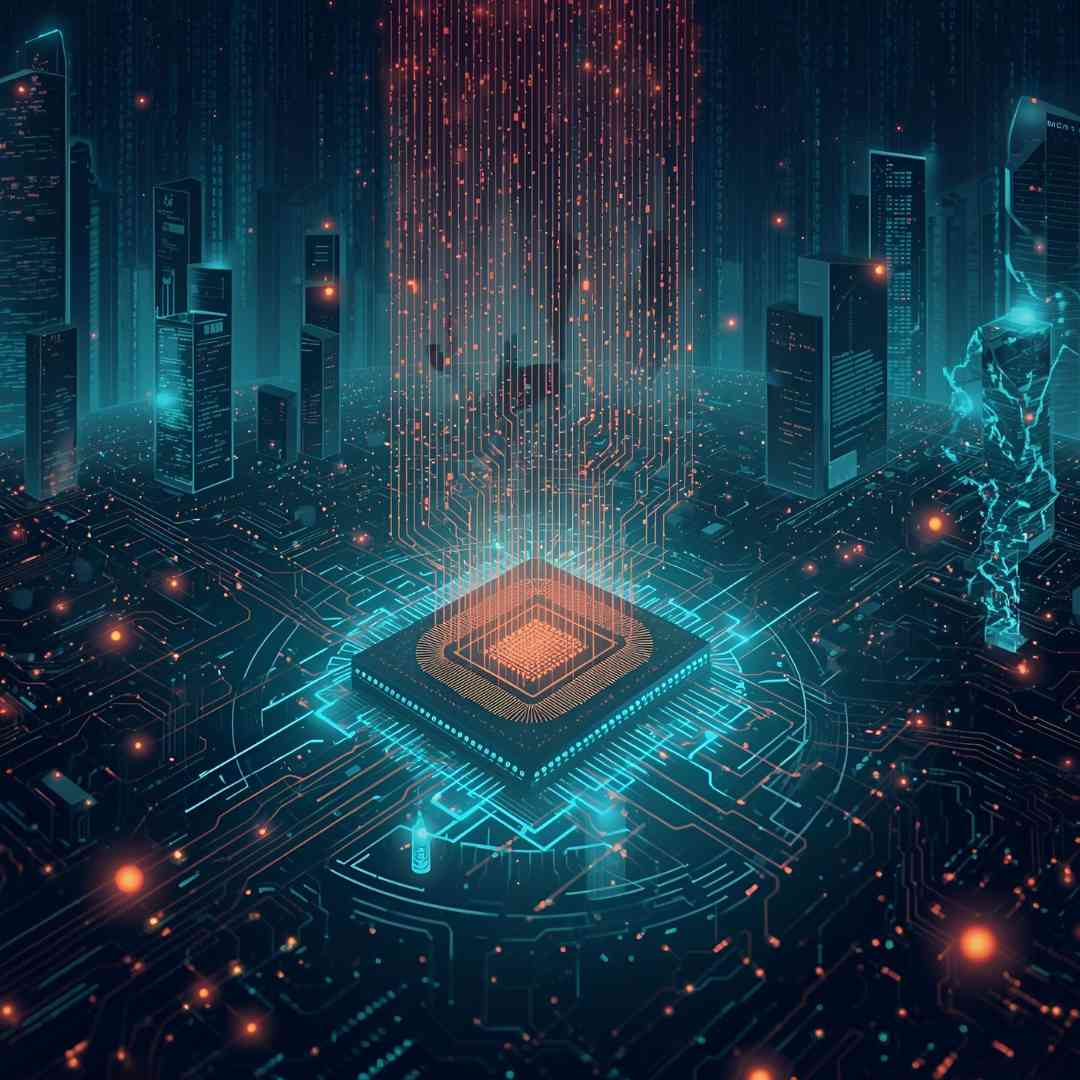For decades, the world of software has been built upon a simple, reliable foundation: the binary bit. A bit is a 0 or a 1, an on or an off state. This paradigm, known as classical computing, has powered the digital revolution, from the first personal computers to the vast cloud infrastructures of today. But on the horizon, a new technological storm is brewing—one that promises to fundamentally alter not just what we compute, but how we think about computation itself. That storm is quantum computing.
For software developers, this isn't just a distant physics experiment. It's a coming shift that will redefine problem-solving, require new skills, and create entirely new paradigms for writing code.
From Classical Certainty to Quantum Weirdness
To understand the impact, we must first grasp the core difference. While a classical bit is either 0 or 1, a quantum bit, or qubit, can be both 0 and 1 simultaneously. This is a property known as superposition.
Imagine you're in a maze. A classical computer would try each path, one after the other, until it finds the exit. A quantum computer, thanks to superposition, could explore all possible paths at the same time. This parallelism is the source of its potentially immense power for specific types of problems.
Furthermore, qubits can be entangled, meaning the state of one qubit is directly linked to the state of another, no matter the distance between them. Change one, and the other changes instantaneously. This "spooky action at a distance," as Einstein called it, allows for incredibly powerful and correlated computations.
The Immediate Impact: A New Class of Problems
Quantum computing won't replace your laptop or your web server. It won't make JavaScript frameworks obsolete. Instead, it will act as a specialized accelerator, a "co-processor" for problems that are intractable for classical machines.
Areas where we will see the earliest and most profound impacts include:
-
Cryptography and Security: This is the most talked-about application. Widely used encryption algorithms like RSA rely on the extreme difficulty for classical computers to factor large numbers. Quantum algorithms, like Shor's algorithm, can factor these numbers exponentially faster, potentially breaking current encryption standards. The response? Post-Quantum Cryptography (PQC). Software developers, especially in security, are already working to integrate new, quantum-resistant algorithms into our systems to future-proof our data.
-
Drug Discovery and Material Science: Simulating molecular interactions is incredibly complex for classical computers. Quantum computers could model complex molecules atom-by-atom, dramatically accelerating the discovery of new pharmaceuticals, designing more efficient batteries, and creating novel materials with custom properties. Software for R&D in these fields will increasingly interface with quantum simulators and eventually, real quantum processors.
-
Optimization and Logistics: From finding the most efficient route for a global shipping fleet to optimizing financial portfolios, many business problems are optimization puzzles. Quantum algorithms are naturally suited to exploring vast numbers of combinations to find the best possible solution. Developers will build hybrid applications where a classical front-end handles user input and a quantum backend solves the core optimization problem.
-
Artificial Intelligence and Machine Learning: Quantum computing has the potential to supercharge certain ML tasks, particularly in optimizing complex AI models and processing high-dimensional data. This could lead to faster training times and more powerful models.
How Software Development Itself Will Change
The rise of quantum computing won't just change what we build; it will change how we build it.
-
New Programming Paradigms: You won't be writing
forloops to iterate through all possibilities. Quantum programming requires a completely different mental model. Developers will need to think in terms of probability amplitudes, superposition, and entanglement. -
New Languages and Tools: A new stack is emerging. Languages like Qiskit (from IBM, Python-based), Cirq (from Google, Python-based), and Q# (from Microsoft, .NET ecosystem) are designed specifically for expressing quantum algorithms. Developers will need to learn these new syntaxes and the underlying quantum mechanics they represent.
-
The Era of Hybrid Computing: For the foreseeable future, most practical applications will be hybrid. A classical computer will handle the overall program flow, user interface, and data management, and will offload specific, complex calculations to a quantum processor. Developers will need to architect systems that seamlessly integrate these two vastly different computing worlds.
-
Shift in Debugging and Testing: How do you debug a program where the state of a variable is a probability distribution and not a single value? Testing and validating quantum algorithms requires new techniques, often involving statistical analysis and simulation on classical hardware.
What Should a Developer Do Today?
You don't need to become a quantum physicist overnight. But the time to start preparing is now.
-
Build a Conceptual Foundation: Start with the basics. Understand the principles of superposition, entanglement, and interference. Numerous online courses and visual explanations are available from IBM, Microsoft, and edX.
-
Experiment with Simulators: Dive in hands-on without needing a million-dollar quantum computer. Use IBM's Qiskit or Microsoft's Quantum Development Kit to write simple quantum programs and run them on simulators on your own machine.
-
Focus on the Classical-Quantum Interface: Strengthen your skills in areas that will be crucial for hybrid computing, such as API design, microservices, and high-performance computing. The developers who can effectively bridge the classical and quantum worlds will be in high demand.
-
Stay Curious: Follow developments from leading companies and research institutions like IBM, Google, Rigetti, and IonQ. The field is moving rapidly.
Conclusion: An Evolutionary Leap
Quantum computing represents not just an incremental improvement but an evolutionary leap in computational capability. For software developers, it is a call to expand our horizons. It challenges us to move beyond deterministic logic and embrace a probabilistic, parallel world of problem-solving.
While the full-scale, fault-tolerant quantum computer may still be years away, its shadow is already stretching across the field of software development. By starting to learn and adapt now, developers can position themselves at the forefront of the next computing revolution, ready to build solutions to problems we once thought were impossible to solve. The transition from bit to qubit has begun.

